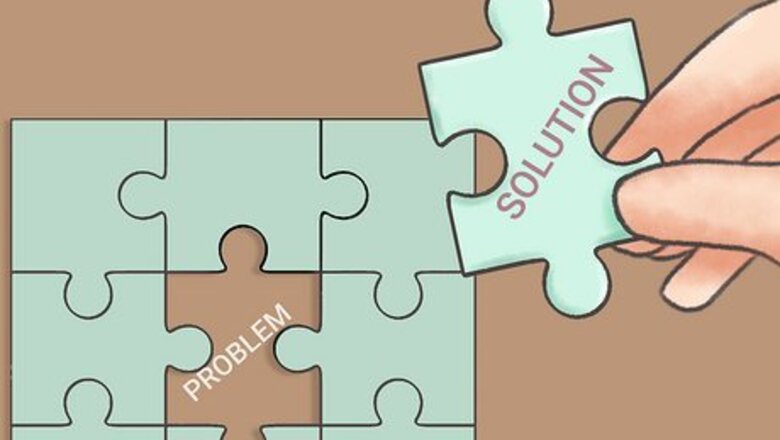
views
Becoming Rational
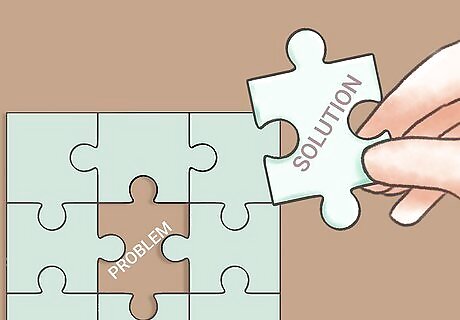
Become solution-oriented. To start thinking rationally, you should start to value coming up with solutions to the problems you encounter all day long. For example, when you can't find a parking spot, stop your car and think about the layout of the parking lot instead of getting angry. Instead of reacting to problems, start solving them.
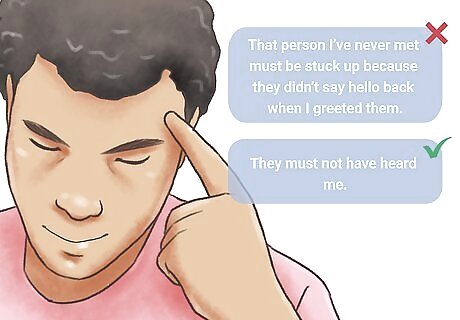
Recognize flaws in your thinking. A rational human being is one who recognizes their own flaws and tries to achieve balance in their thinking. If you are on the road to becoming a rational thinker, you probably started out not being very focused on the way your thoughts work. Get into the habit of checking your thoughts for accuracy to make sure they are realistic. Try writing some of your thoughts down on paper and running them by someone you trust to get a different perspective. If you have a hard time staying rational, then you may want to consider seeing a therapist. If you don’t admit to having problems in your thinking, you can’t practice your reasoning skills. Recognizing flaws in your thought processes shows where you have room to grow. For example, you should start to notice when you make false assumptions or jump to wrong conclusions. A false assumption might be, “That person I’ve never met must be stuck up because they didn’t say hello back when I greeted them.” They may have just not heard you.
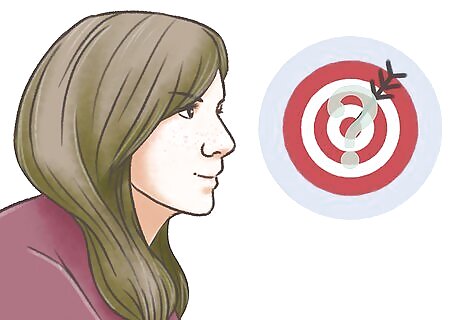
Question your purposes and goals. To recognize flaws in your thinking, you must question why you do things. You should also analyze your goals in the moment. Are you doing something because you want a specific result? Is that result selfish? Will it hurt someone else? This type of reasoning will help you recognize your biases and prejudices. You should also start to apply standards to your thoughts. Strive for accurate, clear, logical thoughts. This means that you should start to value logical reasoning. For example, you may start to talk to others about how important it is to reason with yourself. Another sign you are becoming more rational is recognizing when others fail to follow a logical process. For instance, you might hear someone say, “That guy is so rude! He didn’t even smile back when I greeted.” Instead of agreeing, you see that this person didn’t think about all the possibilities, such as that the “guy” did not see them.

Be mindful of emotions. Another step toward becoming rational is pausing to reflect when you feel negative emotions. Realize that emotions are not necessarily positive or negative; they happen to everyone. Also remember that, although thoughts and experiences often cause emotions, sometimes emotions happen for no reason at all. Ask yourself, "Which emotion am I feeling?" And, "Which negative thoughts or experiences have led me to feel this way?"

Keep a journal to analyze your thoughts. To assist you in analyzing your thoughts, it is helpful to verbalize them in written form. Start to keep a journal in which you write your thoughts about situations that you care deeply about. Detail what you did in these situations. Later, look at what you wrote and analyze your motives. Make sure that you write only about situations that you have strong emotions about. Be very specific in detailing both what occurred and what your thoughts were in the situation. Ask yourself, “What have I learned about myself?” “What would I do differently? What will I do differently if the situation repeats itself?”
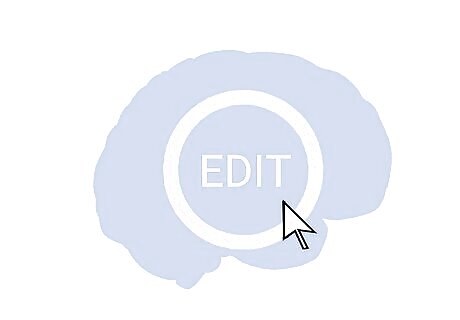
Adjust your thinking to make it more effective. Change the way you think in response to the flaws you recognize. You are now on a journey of constant analysis. Your task now is to watch how you think and ensure that your actions are not selfish or shortsighted. Evaluate the way that you think on a regular basis. When you repeatedly feel negative emotions in spite of an effort to be rational, you may need to try a new approach.
Being Happy

Develop close friendships. Building strong relationships with other people can make you feel happier and less depressed. Friends can lift you out of a negative mood. Having someone to share your experience with helps you feel less negative. Being a friend to someone else, such as being a listening ear, can also make you feel more happy. Build friendships by meeting new people, being friendly, and persevering through obstacles. Engage in a spiritual pursuit because it will help you feel connected to something beyond yourself. A church, synagogue, mosque, or temple will also present you with a strong social network.

Be kind to others. Being kind is good for making you happy. People who care for others on a regular basis have a better sense of well-being. You can be kind to others in a variety of ways. You can be kind directly to others by helping someone who needs it, like serving food at a soup kitchen or moving boxes for a friend. You can be kind indirectly by donating money. Look for people who need help or look like they need cheering up.

Be thankful. Thinking about positive things in your daily life can boost your joy and make you feel better. Directly thanking other people for their kindness also makes you feel happier. Start making a daily list of things you are thankful for. Make it a habit to write thank you cards for gifts throughout the year. You might want to start a diary or journal with a list of things you are thankful for. Add to this list each morning to give your day an extra sense of happiness.

Stay involved in exercise. Staying healthy is directly tied to feeling happy. Exercise in particular boosts a sense of happiness, mainly because of the endorphins that are released when you exert energy. Exercise also increases your sense of physical growth, making you feel good about yourself. For example, going for a morning jog can set up you up for a happy, positive day. Exercise forces you to set and achieve goals, perhaps many in one exercise session. Achieving goals gives you a sense of accomplishment, which promotes positive feelings.

Become content with your life. Many people think that getting more of what they want will make them feel happy. However, experts have observed that after our basic needs are met, more money or items does not add to a sense of well-being. In other words, ceasing to desire additional things will lead to a sense of happiness. To add to a sense of contentment, stop feeling guilty and beating yourself up. If you feel bad about something you have done, ask the people involved to forgive you. Then forgive yourself and stop thinking about it. Take stock of the items in your life. If you have a sense of needing more things, consider changing your mindset so that you feel happy with simple things. Simple things you could focus on include eating dinner with your family, gardening, or listening to music.
Maintaining a Productive Lifestyle

Make schedule changes to save time. There are many things you can do with your schedule to help you get more done in the day. Start by practicing good sleep habits so that you can get up an hour earlier than you used to each morning. Take breaks every few hours to renew your focus.
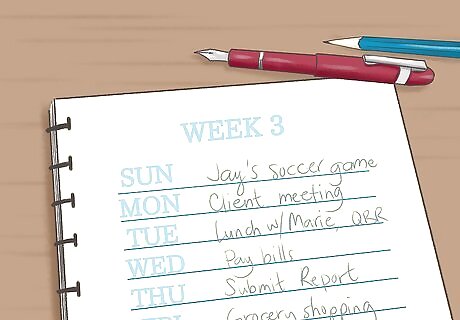
Plan out your week ahead of time. Making a plan for the week before it begins will help you eliminate tasks that take away from your goals. Take Sunday night and make a schedule for each day of the upcoming week. Planning for all five weekdays means you don’t waste time each morning deciding what to do that day. Having a weekly plan also allows you to avoid wasting time on things that are not part of your personal goals. Maintain firm boundaries by saying “no.” Set out clear goals for each day and prioritize them so you don’t waste time.
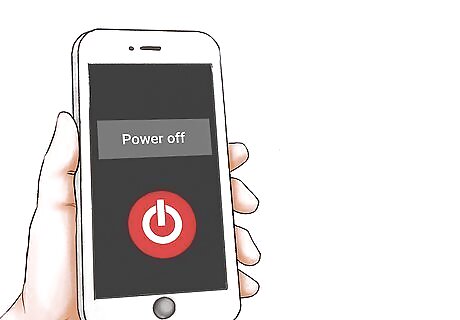
Minimize distractions when you’re working. Think about what things usually cause you to stop working. Is it alerts on your phone? Emails? Being able to overhear coworker conversations? The key to focus is eliminating distractions, so take action to get rid of small things that draw your attention away from important tasks. Turn off your phone for specific blocks of time each day. Turn email alerts off and only check your email at set times.
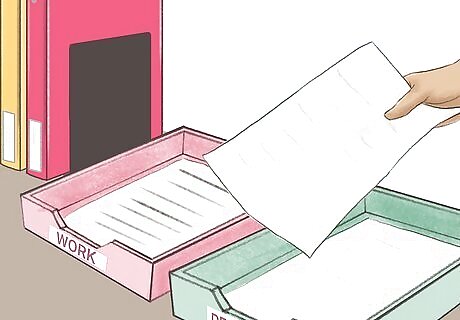
Organize different areas of your life. Being productive isn’t just about the workplace. To be productive in general, you need to get organized. Is your house a mess? Figure out where to store each and every item. Get rid of clutter. Organize your work desk. Organizing also saves time, saves money, and reduces stress.




















Comments
0 comment